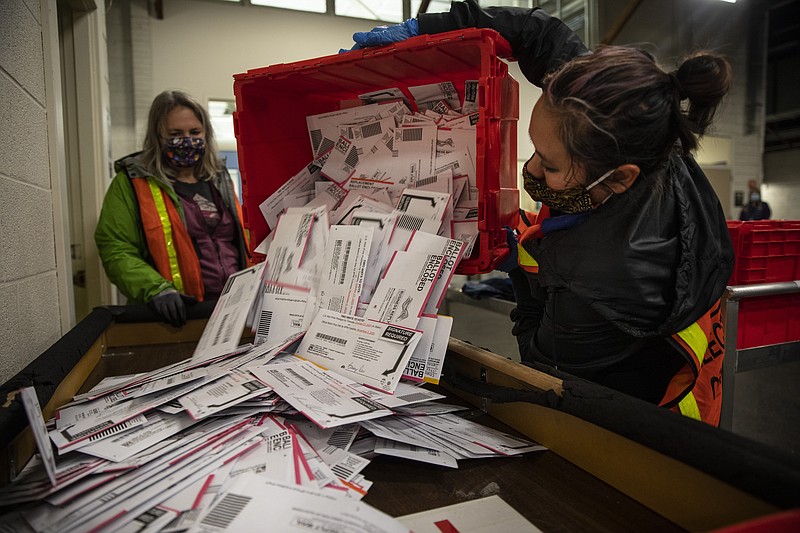Throughout the summer, following the May 25 death of George Floyd at the hands of Minneapolis police officers, a false narrative began to grow in the country.
The United States and its president were racist, the country was shot full of systemic racism, all police were killers, and woke millions were grabbing the hearts and minds of Americans with those charges.
To emphasize their point, the woke illegally tore down monuments of Confederate leaders, toppled statues of figures they deemed part of a patriarchal, white supremacist society, burned buildings, blocked streets and protested for months on end.
The national media, desirous of a chaotic summer that would temper votes for a president they detested, played up the protests and accusations of a racist nation.
Though the country can't, and doesn't, deny its slave past, we never bought the then-spreading rhetoric that the country is one big racist basket of deplorables.
We don't believe Americans saw themselves as unrepentant racists, and, frankly, we don't believe a majority of Blacks thought that of their individual friends.
Nevertheless, the racist charge fed into a lie just as big - that President Donald Trump, because he was an elitist white supremacist, was letting thousands in the country die because he mishandled response to the coronavirus.
Again, we didn't buy it, and we don't believe most Americans ever did. They understood the country was dealing with a once-in-a-century pandemic for which there was no guidebook, and that the president was attempting to balance people's health with an economy that could not be closed down for long periods of time without the country falling into a long-term depression.
At this writing, no presidential winner has been declared. And the promise of recounts, lawsuits and fraud charges threatens to move the announcement of a winner into the holiday season.
But the election already has shown that, no matter which man wins, the country is split in half politically. If former Vice President Joe Biden wins, he is likely to get no more than 290 electoral votes (with 270 needed to win). If President Trump wins, he is likely to get no more than 283 votes.
No landslide for Biden has occurred, as the media have predicted for weeks. The U.S. Senate is not likely to change hands, as left-wing pundits have been forecasting and rubbing their hands over. The popular vote, no matter the result, seems poised to be closer than it was four years ago.
More Blacks, Hispanics and Asians voted for Trump than they did in 2016.
Does that sound like a country that eats, drinks and sleeps racism? Does that sound like a country where declaring one's white privilege need be confessed like an overt sin and where slave reparations - money given by those who were never slave owners to those who were never slaves - need be on the front burner?
No, the election, no matter who wins, shows we are a politically divided country, yes, but not divided - as Biden has declared - over the "soul of America."
Our 50-50 country has differences over the role of government, over how health care should be paid for and administered, over how much legal immigration should be allowed and how much illegal immigration should be disallowed, over the possession of guns, over the role of media and over a number of other issues.
But most of us - on both sides of the political coin - don't wake up every day looking for a group to accuse, looking for people to hate, looking to ruin someone else's livelihood, looking to take away someone else's rights.
Most of us - even if we know the other's political affiliation is different from our own - are willing to assist a neighbor, to help the poor, to house the homeless, to feed the hungry, and to boost those who show promise.
Will the presidential winner, no matter which side, acknowledge this? Will the supporters of the winning and losing sides declare it? Will those who perpetuated the false narrative back down?
In a year fraught with a global pandemic, with unnecessary violence and with a raucous election, we need to come together and acknowledge who we really are, and who we are not.
